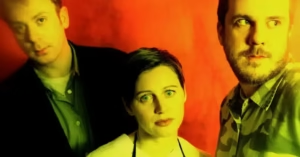The Police: New Wave Icons with Sting’s Signature Sting
The Police. Formation and Origins
The Police were formed in London in 1977, during the height of the British punk explosion, but quickly distanced themselves from its raw simplicity.
The Police. Members:
- (Gordon Sumner) – Lead vocals, bass
- Andy Summers – Guitar
- Stewart Copeland – Drums
Though often seen as a “power trio,” The Police blended punk urgency with reggae rhythms, jazz influences, and pop melody, creating one of the most distinctive sounds of their era.
The Police. Breakthrough and Early Albums (1978–1980)
✦ Outlandos d’Amour (1978)
Initially overlooked, but soon became a cult success, especially in the U.S. and UK.
Key tracks:
- “Roxanne” – Their first major hit, mixing reggae and romantic desperation
- “Can’t Stand Losing You” – Banned by the BBC for controversial themes
- “So Lonely” – Punk energy meets reggae bounce
✦ Reggatta de Blanc (1979)
- A tighter, more confident record
- “Message in a Bottle” and “Walking on the Moon” both hit #1 in the UK
- Showcased rhythmic experimentation and tight musicianship
✦ Zenyatta Mondatta (1980)
- Solidified their global fame
- “Don’t Stand So Close to Me” – Grammy winner, tackled taboo subject matter
- “De Do Do Do, De Da Da Da” – Commentary on language and media
The Police. Global Stardom and Musical Evolution (1981–1983)
✦ Ghost in the Machine (1981)
A darker, more layered album, adding synths and saxophone to the trio’s sound.
Key tracks:
- “Every Little Thing She Does Is Magic” – Romantic and soaring
- “Spirits in the Material World” – Politically charged
- “Invisible Sun” – Banned in some places for its Northern Ireland references
✦ Synchronicity (1983)
Their final and biggest album, and a worldwide commercial and critical smash.
Hits include:
- “Every Breath You Take” – Grammy-winning #1 hit, often misread as romantic, though it’s about obsession and control
- “King of Pain”
- “Wrapped Around Your Finger”
- “Synchronicity II”
Synchronicity earned multiple Grammy Awards and cemented The Police as one of the biggest bands of the 1980s.
The Police. Disbandment and Aftermath
Despite success, tensions within the band were mounting, especially between Sting and Copeland. After their massive 1983–84 tour, they quietly disbanded.
- Sting launched a hugely successful solo career, shifting toward jazz, pop, and world music
- Stewart Copeland composed film scores and orchestral works
- Andy Summers pursued experimental and jazz projects
Their creative differences were also their magic — pushing each other to musical brilliance, but unsustainable long-term.
Reunions and Legacy
- In 2007, The Police reunited for a 30th anniversary world tour, grossing over $350 million
- No new album followed, but the tour reaffirmed their enduring popularity
Legacy and Influence
The Police are known for:
- Fusing punk, reggae, jazz, and new wave into a completely original sound
- Creating intellectual pop music with edge and rhythm
- Launching the solo career of one of pop’s biggest names — Sting
Accolades:
- 6 Grammy Awards
- Over 75 million records sold worldwide
- Rock and Roll Hall of Fame inductees (2003)
- Frequently cited among the best power trios in rock history
Influenced:
- U2,, Radiohead (early work), Incubus, No Doubt
- Artists who merge genres or use reggae rhythms in rock/pop
Interesting Facts
- The Police’s name was chosen partly to exploit punk’s anti-authoritarian image
- Sting earned his nickname from wearing a black and yellow striped sweater
- “Every Breath You Take” is often played at weddings — despite being about obsession and surveillance
- Stewart Copeland’s drumming is studied for its complex time signatures and polyrhythms, often adding jazz and world music elements





